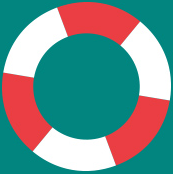Este site é para o Brasil. Selecione seu país se você estiver fora do Brasil.
Este site é para o Brasil. Selecione seu país se você estiver fora do Brasil.
Tudo o que você precisa saber sobre Tumores Neuroendócrinos (TNEs)
Saiba como lidar e
viver com Tumores Neuroendócrinos (TNEs)
Informações sobre os desafios emocionais, físicos e sociais de se viver com TNEs
Ouça relatos de outras pessoas com TNE
“Me tranquiliza saber o que está diante de mim e o que devo fazer. Eu sinto que faço parte de uma equipe e todos eles vão cuidar de mim.”
Helen

Ajudando você a pesquisar uma associação
Se você está vivendo com tumores neuroendócrinos e você está procurando associações pacientes, então você veio ao lugar certo. Pesquise nos recursos listados aqui em ‘Associações de pacientes’ para ver se algum destes pode ajudá-lo.










 tne.vivendocom.com.br – o ponto para informações sobre tumores neuroendócrinos
tne.vivendocom.com.br – o ponto para informações sobre tumores neuroendócrinos 
